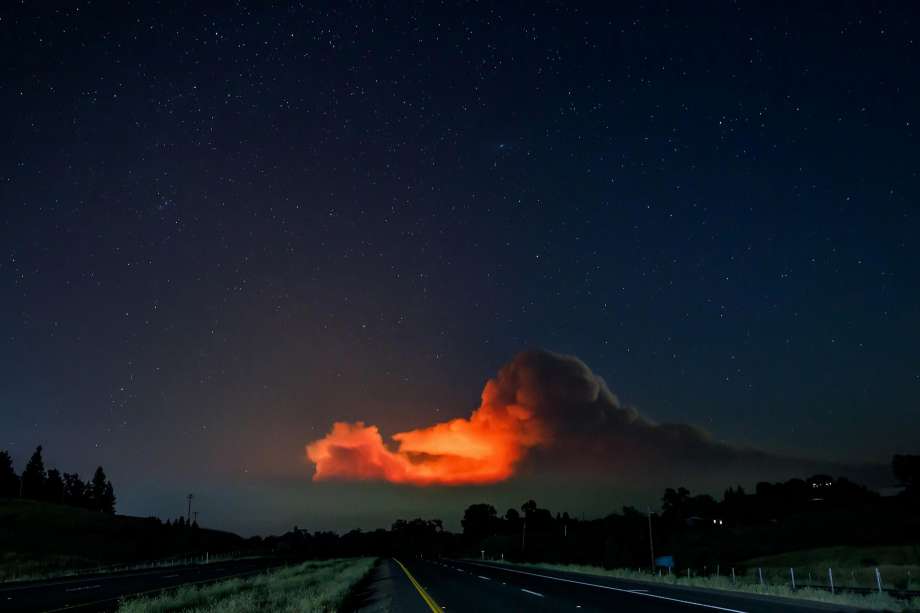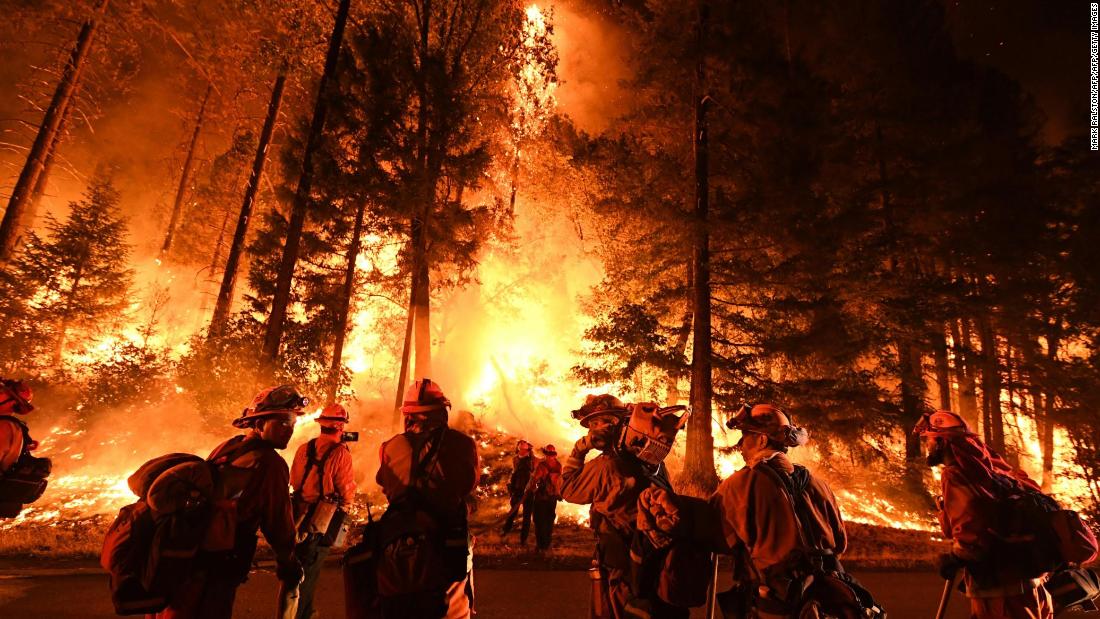This town of about 100,000 in northern California is atmospherically downstream from huge fires—the Carr fire about an hour away near Redding, which has killed 7 people and is beginning to be contained; and the Mendocino Complex Fire that has exploded into the biggest in the state’s history.
The sun varies from strained whiteness to angry orange. At times in recent days, small flecks gently rained from the sky, ghastly ashflakes drifting down from the opaque grayness.
The local news tells people to stay inside and change the air filters on air conditioners. The streets have half the traffic flow, and there are hardly any people in the park, or biking around this cycling town.
Some of the park users have been abusing it, rather than treating it like the sanctuary it is. For example at one spot which despite frequent use is usually clean, half-dozen articles of clothing, along with bottles and other trash, were scattered about.
 Adding insult to injury, on one of the large, smooth beech trees on the path down to the creek there, some cretin carved “A + C” in large letters. Similar evidence that the interminable smoky skies are bringing out the worst in people is evident throughout Lower Park.
Adding insult to injury, on one of the large, smooth beech trees on the path down to the creek there, some cretin carved “A + C” in large letters. Similar evidence that the interminable smoky skies are bringing out the worst in people is evident throughout Lower Park.
Though more than a half dozen people have lost their lives and hundreds their homes in the sister city of this part California about two hours from the Oregon border, most people are still desperately trying to psychologically separate and distance themselves from what is happening.
‘As long as it doesn’t affect me personally’ has been the motto of the town and country for years. The thick gray haze makes the cultural reality palpable however, and it’s become much more difficult to pretend everything is ok in sunny California.
Even for Buddhists. Perhaps especially so, given their mantra, ‘we can only awaken ourselves.’ That attitude has produced millions of siloed people ‘working on myself,’ thereby adding another layer to the silos of specialization in American and Western culture.
An elderly local Buddhist teacher I spoke with a few days ago actually said, “Humanity is an abstraction.” For her and her followers, there is only the personal realm, where small groups of ‘Insight Meditators’ take 45-minute sittings indoors together, followed by “sharing their personal problems in light of the dharma.”
“Awakening is very personal,” she declared, thereby completely inverting the Buddha’s teaching. Siddhartha taught that the personal dimension, which flows from the separate self, is the source of delusion.
She went on to say that talking about things in global terms amounts to ‘group-think.’ That bit of Buddhist darkness fits well with Steve Bannon’s philosophy, which is to “break the back of the globalists.”
A comfort with contradiction, by one minute maintaining, “awakening is very personal” and the next saying, “the self is an illusion,” characterizes the practice of Buddhism in the United States. It has thus contributed to the confusion and chaos we see at every level in the culture today.
There is another approach altogether. It involves taking complete responsibility for one’s personal darkness without making it personal.
In facing and taking responsibility for our own conditioning, grudges and sludges in the context of human consciousness as a whole, one doesn’t project and act out as a rule (as so many people do in America, beginning with our infamous president).
To be fair, there is an ancient conundrum here, and we can’t be too hard on Western Buddhists for not resolving it. (Whatever insight the Buddha ignited, it has since long disappeared in the smoke of competing traditions.)
The conundrum is between ‘doing one’s own spadework,’ and ‘awaking is personal.’ They appear to be the same thing, but are completely different, and a sharp distinction has to be made between them.
The illusion of ‘myself and my journey’ precludes doing one’s own spadework. Indeed, to begin actually doing one’s own spadework, and be on the journey of awakening, the idea of ‘my journey’ has to end.
In short, doing one’s spadework cannot be done in terms of the personal dimension, or one merely reinforces self-centeredness.
The ‘personal path’ idea dovetails with individualism, which is why it saturates Western Buddhism. The net effect has been a large increase in self-centeredness.
Seeing oneself as a microcosm of humanity is not an abstraction; it is the actuality.
Martin LeFevre

